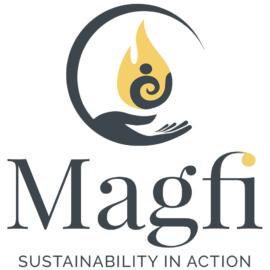Net Zero Food System
We will enable the transition to a net zero food system, measuring and quantifying the change through reduced CO2 equivalent emissions.

The food system is responsible for almost a third of greenhouse gas emissions, with connected challenges such as food waste, resource depletion and energy consumption. To reach net zero and mitigate the impacts of the climate crisis, we must scale a systems approach to change that enables the transition to sustainable and regenerative agriculture practices, creates new markets and opportunities for food waste and loss reduction, and empowers all stakeholders to play an active role in the circular food economy.
Want to learn more about the opportunities to achieve a net zero food system?
EIT Food picks agri-food startups for its entrepreneurship programmes
July 19, 2022 - Impact Investor
in the media
EIT Food, part of the European Institute for Innovation & Technology (EIT), announced last week that 15 agri-food startups were joining its entrepreneurship programmes.
blog
The relationship between food production and planet has fractured. Industrialisation has meant that food systems have prioritised mass productivity and efficiency rather than working in a sustainable way. How can the food system better…
InformPack
2021 > 2023
project
InformPack explores the cross-cultural variations amongst consumers in terms of awareness, information gaps, issues and attitudes towards food packaging upon purchase and disposal patterns at home and on the go.
How fine food retailers can champion food traceability using technology
July 05, 2022 - Speciality Food
in the media
Food traceability is becoming increasingly important to consumers as they become more aware of safety issues and sustainability, and indies can provide the transparency they need.
Latest related news
Looking for more content related to Net Zero Food System?
Related start-ups in our network
Kern Tec GmbH
Austria
Betta F!sh
Germany
EcoBean
Poland
Tilkal
France
Onego Bio
Finland
Green Spot Technologies
France
EIT Food reveals new cohort of impactful agrifood startups
June 23, 2022 - FeedNavigator
in the media
EIT Food has announced the latest group of companies to join its Food Accelerator Network (FAN) - a total of 61 agrifood startups have been selected to receive support and investment opportunities to grow and scale.
blog
Eating insects may seem unusual to some, but with approximately two billion people already consuming them across the world (1), should we expect to see more insect protein on European supermarket shelves soon?
‘Happy Farming’: The Circular Soil Economy
June 02, 2022
regional blog
In the search for a more affordable way to farm, Francisco Ruiz Rico discovered the secret to creating healthy, self-sufficient soil, full of life. It has boosted production on his family’s olive farm in Priego de Córdoba, Spain, and…
Dairy Production Begins in the Soil
June 02, 2022
regional blog
Kepa Agirregoikoa produces cheese and yoghurt on a small farm in Bizkaia.
A lab on a chip
May 24, 2022 - Dairy Industries International
in the media
Food contamination is mostly monitored in the production phase, such as in factories, using methods where analysis may take up to a week. Standard methodologies involve several time-consuming steps that slow down time to result. This delay…
British cheese: A sustainable future
May 24, 2022 - Speciality Food
in the media
When we think about cheese, we might conjure images of crumbly slices served on crisp crackers with a glass of perfectly paired port, not its sustainability credentials. But is all this about to change?

Cultivating Our Climate
May 12, 2022
report
What are the business strategies to decrease carbon emissions in agrifood sector? Read the Cultivating our Climate report and learn about the trends in lowering GHG emissions by discovering best practices from several Central European…

The Regenerative Agriculture Manual
May 11, 2022
report
The Regenerative Agriculture Manual is a crop-specific guidebook designed to help Mediterranean farmers transition from conventional or organic production systems to regenerative agriculture.
Related partners
Agri-EPI Centre
United Kingdom

Magfi
Malta

Scottish Association for Marine Science (SAMS)
United Kingdom

Milcoop
Italy

Aarhus University
Denmark
EIT Food picks agri-food startups for its entrepreneurship programmes
July 19, 2022 - Impact Investor
in the media
EIT Food, part of the European Institute for Innovation & Technology (EIT), announced last week that 15 agri-food startups were joining its entrepreneurship programmes.
blog
The relationship between food production and planet has fractured. Industrialisation has meant that food systems have prioritised mass productivity and efficiency rather than working in a sustainable way. How can the food system better…
InformPack
2021 > 2023
project
InformPack explores the cross-cultural variations amongst consumers in terms of awareness, information gaps, issues and attitudes towards food packaging upon purchase and disposal patterns at home and on the go.
How fine food retailers can champion food traceability using technology
July 05, 2022 - Speciality Food
in the media
Food traceability is becoming increasingly important to consumers as they become more aware of safety issues and sustainability, and indies can provide the transparency they need.
EIT Food reveals new cohort of impactful agrifood startups
June 23, 2022 - FeedNavigator
in the media
EIT Food has announced the latest group of companies to join its Food Accelerator Network (FAN) - a total of 61 agrifood startups have been selected to receive support and investment opportunities to grow and scale.
blog
Eating insects may seem unusual to some, but with approximately two billion people already consuming them across the world (1), should we expect to see more insect protein on European supermarket shelves soon?
‘Happy Farming’: The Circular Soil Economy
June 02, 2022
regional blog
In the search for a more affordable way to farm, Francisco Ruiz Rico discovered the secret to creating healthy, self-sufficient soil, full of life. It has boosted production on his family’s olive farm in Priego de Córdoba, Spain, and…
Dairy Production Begins in the Soil
June 02, 2022
regional blog
Kepa Agirregoikoa produces cheese and yoghurt on a small farm in Bizkaia.
A lab on a chip
May 24, 2022 - Dairy Industries International
in the media
Food contamination is mostly monitored in the production phase, such as in factories, using methods where analysis may take up to a week. Standard methodologies involve several time-consuming steps that slow down time to result. This delay…
British cheese: A sustainable future
May 24, 2022 - Speciality Food
in the media
When we think about cheese, we might conjure images of crumbly slices served on crisp crackers with a glass of perfectly paired port, not its sustainability credentials. But is all this about to change?

Cultivating Our Climate
May 12, 2022
report
What are the business strategies to decrease carbon emissions in agrifood sector? Read the Cultivating our Climate report and learn about the trends in lowering GHG emissions by discovering best practices from several Central European…

The Regenerative Agriculture Manual
May 11, 2022
report
The Regenerative Agriculture Manual is a crop-specific guidebook designed to help Mediterranean farmers transition from conventional or organic production systems to regenerative agriculture.


Loading more content...







